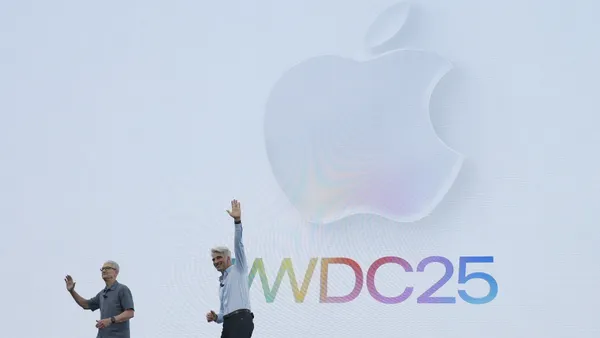For decades, marketing has ridden one technology wave after another, from the cloud and business intelligence to IoT and augmented reality. Each promised transformation, but few truly changed the role.
But Kaveri Camire, AI-native marketing and communications leader, believes the current AI wave is fundamentally different. This isn't about doing the same work faster, it's about elevating marketing to deliver entirely new, higher-value work.
“We are in a golden era of disruption,” Camire says. “Either you become part of the disruption journey, or you get disrupted.”
The difference this time is democratization. AI is no longer the domain of the few; it’s accessible to everyone, and its daily use has become table stakes. The challenge now is not whether to use AI, but how to refine it and apply it with an outcome-driven perspective.
This era opens the door to reimagining marketing itself, embedding AI into workflows, cultivating “super learners,” and tracking a bold new metric called Trust ROI. AI is the great equalizing force, and new levels of productivity will allow room for increased imagination and innovation.
Building “Trust ROI” as a Growth Driver
Trust has always been an intangible in business. But in the AI era, Camire believes that trust can be measured – and even monetized.
“Trust is no longer a nice-to-have; it’s a business asset that directly drives loyalty, advocacy, and growth,” she explains. “We are applying this mindset internally as our own ‘client zero’, pressure-testing new agentic workflows within legal, HR, and marketing before scaling them for customers.”
This approach builds confidence for clients by demonstrating that we’ve done the experimentation, learned the lessons, and validated the outcomes ourselves. The result is scalable capabilities that are both tested and trusted. Customers can be assured that when they adopt a solution, it has already been proven in real-world conditions – with security, governance, and outcomes thoroughly validated.
The payoff? Tangible, measurable results across industries:
- Equitable Holdings implemented a GenAI-powered claims chatbot in just 30 days, reducing call times by 80% and dramatically improving customer service. The rollout is a prime example of how smaller, targeted initiatives can help organizations explore AI’s potential without disrupting day-to-day operations.
- The European Space Agency (ESA) partnered with DXC to transform a prototype into ASK ESA – a secure, generative AI enterprise platform built for speed, scale, and insight. The solution is already saving engineers hours every week, giving researchers more time to focus on what matters most: unlocking the mysteries of space.
- Ventia, an infrastructure powerhouse, is using a tailored generative AI platform built by DXC to slash bid response times from days to minutes. With faster, smarter proposals, Ventia can compete more effectively for high-value, multi-million-dollar infrastructure contracts and secure a competitive edge.
Across these projects, trust created a flywheel: it encouraged more data sharing, which led to better outcomes, deeper client relationships, and ultimately new opportunities.
Empowering “Super Learners” Inside Marketing
To capitalize on AI’s potential, Camire has built a team culture where curiosity and experimentation are the norm. “Learning by doing is more important than ever,” she said. “This is not textbook learning; it’s getting your hands dirty and changing the game.”
She and her team have begun experimenting with AI in content creation, producing fully AI-generated videos (from animation to audio to voice) using ten different tools. But what matters most is keeping people not just in the loop but at the center of the creative process – ensuring accuracy, accountability, and imagination. The tools are powerful, but their real value lies in how they open doors for talent to engage at new creative levels. The goal isn’t perfection; it’s speed, creativity, and collective learning.
Camire calls this approach lean intelligence – using AI to reduce manual tasks, free up time, and enable more strategic work. The results are measurable: a 30% reduction in time-intensive tasks to produce content, with that capacity reinvested in creative and strategic efforts fully aligned with business objectives.
The impact of AI goes far beyond efficiency, Camire explained. Global knowledge work is valued at $20-30 trillion, and even a 20-30% productivity gain from AI could unlock as much as $5 trillion in economic value. That kind of scale will change the game forever.
Why This Matters for Marketing Leaders
For marketing leaders, this journey offers a blueprint for what the function can become in the AI era.
Marketers who adopt an AI-first mindset gain a competitive edge: better data, faster pivots, and stronger alignment with the business. And as Camire notes, if marketing isn’t connected to growth objectives, that’s a problem – with or without AI. What’s different today is that AI makes that alignment achievable at both speed and scale.
Her advice is clear
The impact of AI goes far beyond efficiency.
Be in the driver’s seat, engage hands-on with AI, and ensure that every initiative is tied to measurable outcomes. Then build a culture where teams can learn fast, fail smart, and scale what works. “This is the moment to lean in, get uncomfortable, and unlock the creativity and performance of your team,” Camire says. “Organizations that do this will shape the future of marketing.”
AI presents a rare opportunity to reinvent marketing and is the greatest economic unlock of our times. And it becomes truly transformative when it amplifies human creativity at the center, turning imagination and performance into a powerful and thriving growth engine.










